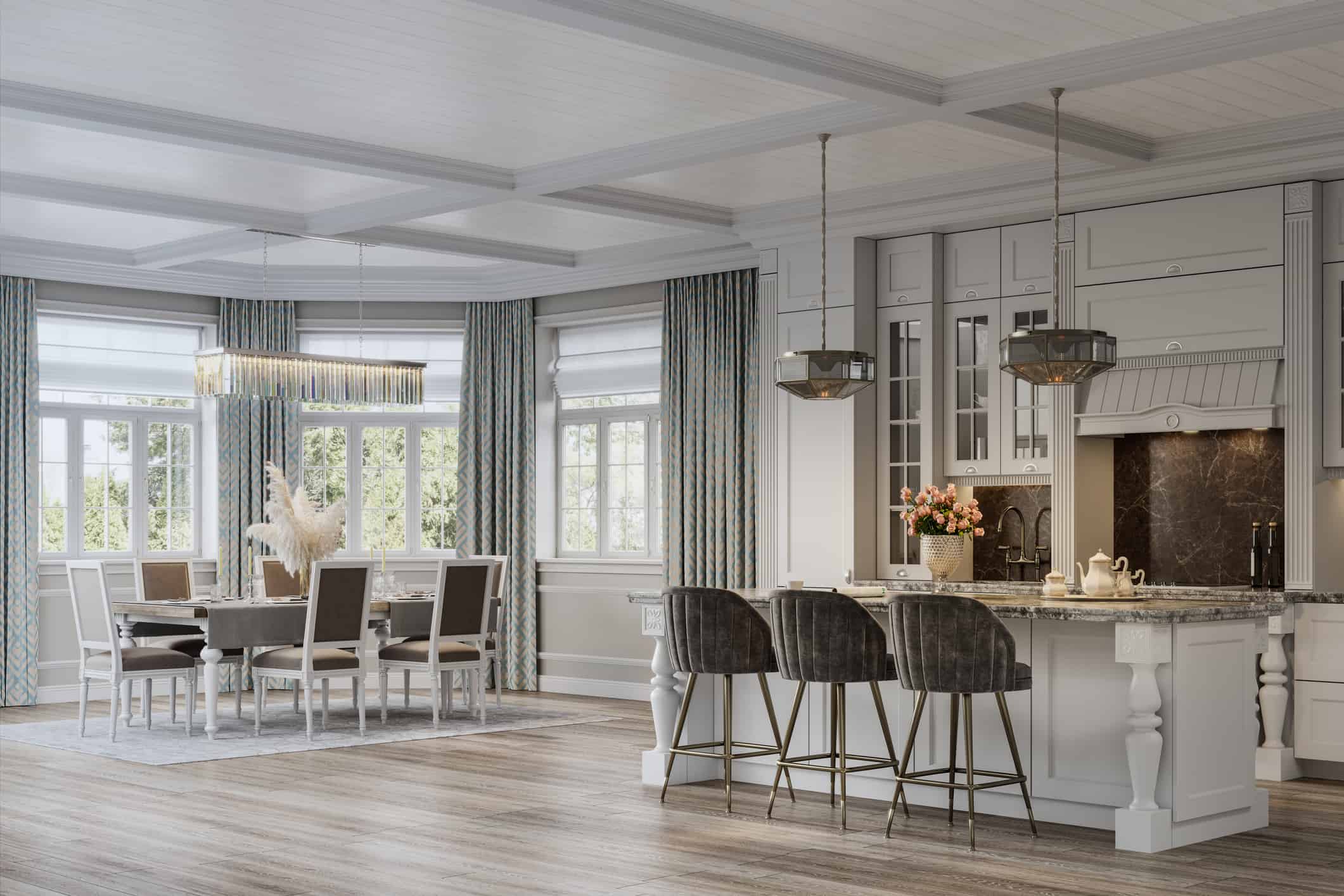Hardwood floors are certainly a beautiful addition to any home, but is there any incentive to install hardwood flooring beyond the aesthetic benefits? All else being equal, will a home with hardwood floors be more desirable to prospective buyers than one without? Lastly, as far as home renovations go, will hardwood flooring hold, or even appreciate in value over the years? This article will address these important questions and others before you head down to your hardwood flooring supplier.
Does hardwood increase a home’s valuation?
Unfortunately, there isn’t a lot of empirical data to suggest that a home’s value automatically increases with the addition of hardwood flooring, though some sources claim it can bolster a home’s resale value by up to 2.5%. Having said that, each market is different and hardwood flooring isn’t equally common in all markets. A savvy homeowner who seizes on hardwood flooring as a differentiator can certainly expect their home to sell more quickly and for a higher price than a home that doesn’t have hardwood. If you’re unsure whether the housing market in your area is deficient in hardwood floored homes, speak to a real estate agent who lists homes in your neck of the woods.
What sort of return on investment will hardwood yield?
There are many variables to consider when determining what your return on investment will be when it comes to hardwood floors. Things like the type of wood or the manner in which it is installed (i.e. the pattern and direction of the planks) can significantly alter the value, For example, if you decide to lay all the planks in the same direction, you may inadvertently make the room smaller than it is; other design decisions can also negatively impact a buyer’s perception of an otherwise beautiful floor. A general rule of thumb is that your hardwood floor will yield a rate of return of around 75-80% of the investment cost. Though there are other home renovations that yield a higher ROI (for example, a newly renovated bathroom will produce a ROI of over 100% provided that the renovations were completed shortly before the home goes up for sale), as far as flooring goes, no other material will provide a higher return than wood.
Engineered hardwood vs solid wood flooring
When it comes to hardwood flooring, you have options – which, in many respects, is a good thing. Of course, you can choose to go with tried-and-true solid wood flooring, but there are a few reasons why this might not be the right product for your space. The first is price. Solid hardwood is generally a few dollars more expensive than engineered hardwood. Though the amount per square foot may seem minimal when you’re shopping around, the overall cost can be substantial once you calculate the areas of each room you’re renovating.
Cost is one thing, but arguably the greatest advantage of engineered hardwood is its superior temperature and moisture resistance. Depending on the room you’re finishing (e.g. kitchen, bathroom, mudroom), you might appreciate the peace of mind that comes with choosing a flooring product that is less likely to warp from fluctuating temperatures or swell from moisture.
In terms of style, it is very difficult to distinguish between 100% solid hardwood flooring and engineered hardwood. That’s because the top layer of engineered hardwood is in fact, solid hardwood. Because engineered comes in a variety of colors and finishes, you shouldn’t have any trouble finding flooring that checks the style box.
Add years of beauty to your home
While hardwood flooring will likely provide a boost to your home’s resale value, the real appeal of hardwood flooring is achieved through ownership. Hardwood is a timeless material that marries well to most styles and arguably becomes more beautiful over the years. For more information on hardwood floors or to find out which product, finish, or color is right for your home, speak to one of our flooring representatives.

